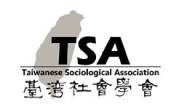5.公民社會與公共審議:一般公民和社團活躍份子的審議傾向(Civil Society and Public Deliberation: Deliberative Dispositions of Gen
2018-08-20
| 描述 Description |
許多文獻指出,公民社會團體的抗爭性格和策略行動邏輯,與審議 民主存在緊張關係。根據這樣的觀點,社團活躍份子與一般公民比較起 來,傾向於質疑審議的程序,也不容易改變政策立場;整體來說,他們 比較不支持公共審議。這樣的宣稱,缺乏嚴格的經驗檢證。本文以二代 健保規劃期間所舉辦的「公民論壇」和「法人論壇」為資料,進行量化 與質化分析,發現一般公民和社團活躍份子,他們對政府所舉辦的公共 審議論壇的支持程度,並沒有明顯的差異。社團活躍份子和一般公民比 起來,雖然對審議的程序比較抱持批判的態度,但他們反而比較可能改 變政策態度。 本文同時也解釋社團活躍份子審議傾向的差異。我採取「公民社會 形構論」的觀點,指出:公民社會團體的組織特質、與其他社會團體以 及與國家的關係,這三組因素影響社團活躍份子的審議傾向。我發現, 社會團體如果具有內部民主的機制,以及異質的多元意見,其領導人的 政策立場比較有彈性,能夠改變偏好。社會團體如果和其他團體有比較 強的信任關係,或對政府政策資訊的公開比較滿意,其領導人對審議程 序的評價也比較正面。 關鍵詞:審議民主、公民社會、公共審議、社會運動、公民參與 |
| 形式 Form | 文字、單期 |
| 來源 Origin | 台灣社會學會 |
| 關聯 Relation | 台灣社會學刊第62期 |
| 英文摘要 abstract | Civil Society and Public Deliberation: Deliberative Dispositions of General Citizens and Civic Group Activists Kuo-Ming LIN Department of Sociology National Taiwan University Abstract The literature contains many studies of tension between deliberative democracy and the confrontational characteristics of civic activists. It is said that civic activists are more likely to oppose deliberative democracy than the general citizens. This study compares the deliberative dispositions of the two groups, using data from “citizen forums” and “civic group forums” in which participants discuss financing reforms for Taiwan’s national health insurance program. Results indicate that civic group activists do not necessarily oppose or support deliberative democracy. Instead, it appears that the configuration of society (i.e., the organizational characteristics of civic groups) and their relationships with other groups and the state influence the deliberative dispositions of activists. Keywords: deliberative democracy, civil groups, public deliberation, social movement, citizen participation |
| 創作者 Creator | 林國明(Kuo-Ming LIN) |
| 出版者 Publisher | 台灣社會學會 |
| 貢獻者 Contributor | |
| 權利 Right | 已授權 |
| 日期 Date | 2016年6月 |
| 格式 Format | |
| 識別碼 Code | tsa-tj-059_20160600_0004-0000-p |
| 語言 Language | 中文 |
| 數位檔連結Download | ( tsa-tj-059_20160600_0004-0000-p.pdf ) 華藝線上圖書館連結▼ |



